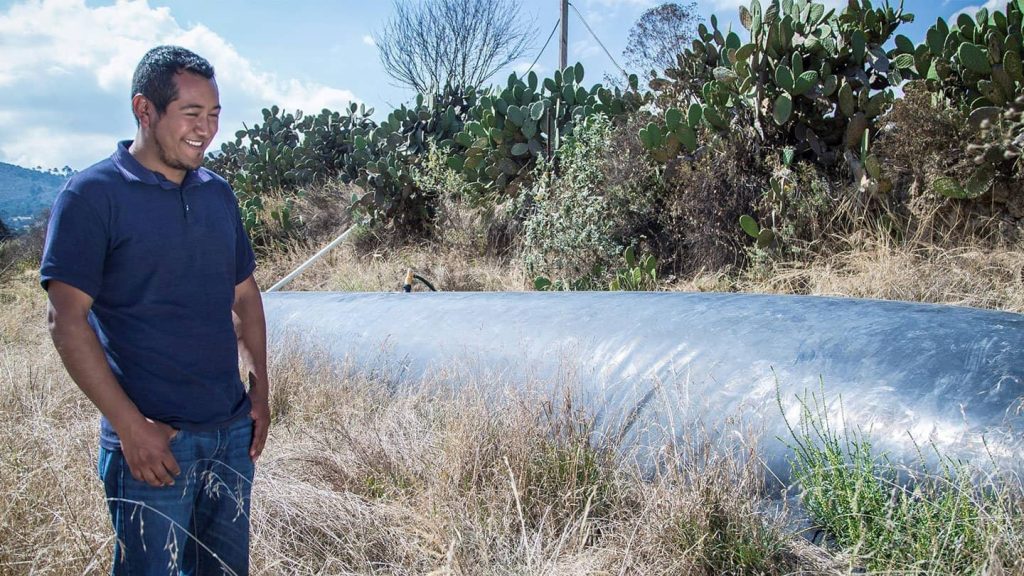During 2015, according to FAO data, there were 224 million international migrants, one of the strongest causes of these movements is that people living in rural areas, most of them farmers, decide to move to the cities looking for better living conditions. From 2000 to 2015 the number of people who changed their place of residence to cities increased by 40%.
More than 75% of people around the world living in poverty live in rural areas and depend on subsistence agricultural production, however, climate change has severely affected the way farmers produce food for their own and local families. One-third of the population that migrates are between 15 and 34 years old, which means that little by little the field will be running out of farmers, without people harvesting food for a population that is constantly growing and those who decide to stay must deal with climate change, droughts and soil infertility.
How to improve the situation of farmers in the field?
Although the numbers of migrant farmers continue rising, it is estimated that by 2050, half of the population of developing countries will still live in rural areas and increasing farmer’s productivity is a key point to promote interest in young farmers to keep the family tradition.
On World Field Day it is important to raise awareness of how sustainable development in the sector can increase the productivity of farms to improve family income.Don José is an example of how this situation can be improved. He lives in Tlaxcala and has a cheese factory. It is a family business that he decided to start more than 20 years ago.
“I was born here in Tlaxcala, but I lived in Mexico City in the 70’s. My brother and I were bricklayers, I left the town because there was not much money and since I did not have any studies”.
Don José worked several years in the city and saved enough to buy the land where his house and cheese factory is now, near Calpulalpan, Tlaxcala.
“I finally came back, I missed my cows and my family. And since I started my stable, my wife was the one who knew how to make cheese and now we have our own family business “.
The five children of Don José and his grandchildren work in the business. One of her daughters is in charge of the stables, the others are in charge of the production. Don José, his grandchildren and children are responsible for the distribution of their cheeses in Puebla and Tlaxcala, they even have clients travelling from Mexico City.
Since 2012, Don José’s family has been using biogas for cheese making and for cooking, because although only he and his wife live in the house, there eat more than 12 people, including their children, grandchildren and even great-grandchildren. “The biodigestor helps us much in the economy because we save the gas that is getting more and more expensive and the fertilizer. We load the biol in a truck and use it in the field to grow the cow’s forage, it is a great help to stop buying fertilizer.
The money he has saved now invests in the purchase of animals and in the welfare of his family. José’s example demonstrates the importance of technology and financing for sustainable development in the rural sector, that allows farmers and their families to make important investments to get ahead. With a small margin of utility and better efficiency process, they are able to make investments in the farms that allow them to grow.
Although it is hard work, Don José is very proud of his business and that he has left a heritage for his family. “It’s based on effort and discipline” – He tells us at the moment that he proudly picks up one of his cheeses in his factory, “and because our cheeses are natural, without conservative and they are made 100% cow’s milk, that’s why they’re looking for our products. ”
Now in Don Jose’s town, there are more than 500 families that have a digester system, making a healthier, more sustainable and more just community, replicating the same benefits that Jose has experienced to improve the lives of farmers in the region and so that Next generations of producers can live close to their families.
